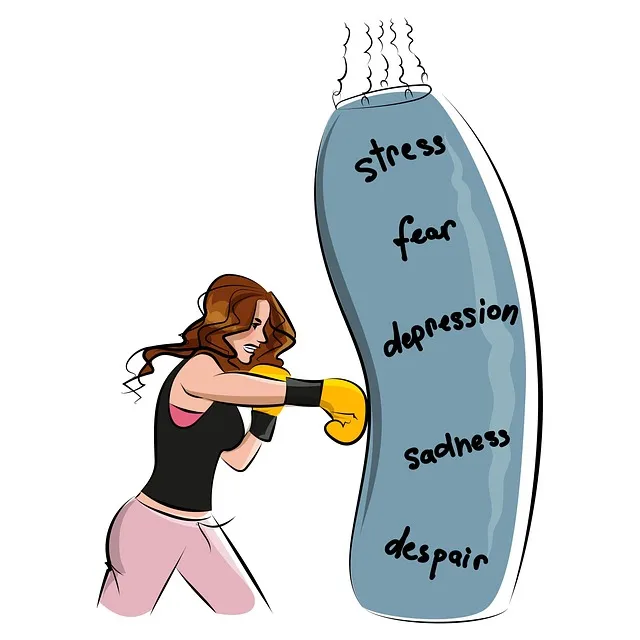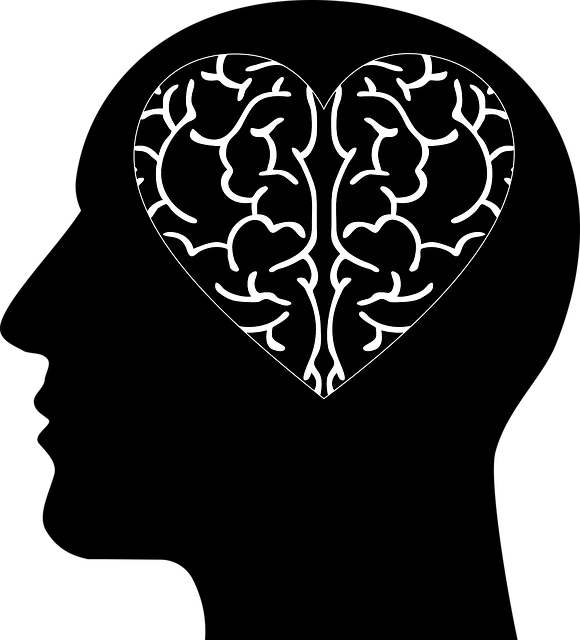Kaiser Permanente Wheat Ridge prioritizes mental well-being by offering comprehensive mental health services integrated with resilience-building programs based on the RFM framework (Recovery, Flexibility, Mastery). These initiatives include mindfulness practices, stress management techniques, and crisis intervention guidance. Through dedicated staff training, workshops, and accessible resources, they foster a resilient community. Success is measured using pre/post assessments, surveys, interviews, and long-term outcome monitoring to ensure the effectiveness of their mental health services in Wheat Ridge.
“Discover how resilience-focused programs, particularly those employing the RFM (Recovery, Flexibility, and Mastery) framework, are transforming mental healthcare. This article explores the intersection of RFM and resilience building exercises, highlighting their significance in addressing mental health challenges. We examine Kaiser Permanente’s innovative approach with its mental health services in Wheat Ridge, focusing on how these strategies enhance patient outcomes. Learn practical implementation tips and measurement methods to effectively integrate resilience exercises into healthcare settings.”
- Understanding RFM and Its Role in Resilience Building
- Kaiser Permanente's Mental Health Services in Wheat Ridge: An Overview
- The Importance of Integrating Resilience Exercises into Healthcare
- Practical Implementation Strategies for Effective RFM Programs
- Measuring Success: Evaluating the Impact of Resilience Training
Understanding RFM and Its Role in Resilience Building

Resilience is a key factor in coping with life’s challenges and stressful situations. This is where RFM (Recovery, Flexibility, and Mastery) comes into play. Understanding RFM involves recognizing three primary components that contribute to an individual’s resilience. Recovery refers to the ability to bounce back from setbacks and adverse events, ensuring that one can resume functioning effectively. Flexibility entails adapting to changing circumstances and managing emotions during turbulent times. Mastery involves taking control of one’s life, making informed decisions, and cultivating a positive outlook.
Kaiser Permanente, a healthcare provider in Wheat Ridge, does not only offer mental health services but also emphasizes the importance of RFM principles in its wellness programs. By integrating practices such as Emotional Intelligence and Mind Over Matter Principles, Kaiser Permanente equips individuals with valuable tools to build resilience. Crisis Intervention Guidance is another aspect that supports individuals in navigating through challenging situations, fostering emotional well-being, and enhancing their overall resilience.
Kaiser Permanente's Mental Health Services in Wheat Ridge: An Overview

Kaiser Permanente, a leading healthcare organization, provides comprehensive mental health services at its facility in Wheat Ridge. This location serves as a pivotal hub for individuals seeking support for their psychological well-being. The mental health team at Kaiser Permanente is dedicated to offering a range of specialized services tailored to meet diverse needs. From individual therapy sessions to group support programs, they aim to foster resilience and emotional well-being among the community.
The facility’s approach to mental healthcare integrates various evidence-based practices, including Risk Management Planning for Mental Health Professionals, to ensure a safe and supportive environment. Additionally, they have developed Mental Wellness Coaching Programs that focus on enhancing emotional intelligence, a key component in building resilience. These programs cater to individuals looking to navigate life’s challenges with greater equanimity and self-awareness.
The Importance of Integrating Resilience Exercises into Healthcare

Resilience exercises play a pivotal role in enhancing patient care and overall well-being within healthcare settings, particularly in facilities like Kaiser Permanente Wheat Ridge. Integrating these practices into routine healthcare services offers numerous benefits for both patients and providers. By incorporating resilience training, such as mindfulness or stress management techniques, healthcare professionals can better support their patients’ mental health needs. This is especially crucial given the increasing recognition of mental wellness as a fundamental aspect of overall health.
The Mental Wellness Podcast Series Production and Trauma Support Services provided by Kaiser Permanente demonstrate their commitment to this area. These initiatives aim to empower individuals with tools to navigate life’s challenges, fostering resilience and promoting better coping strategies. Additionally, regular Mental Health Education Programs Design can equip patients and caregivers with the knowledge to recognize and manage mental health issues early on. Such proactive measures contribute to a healthier, more resilient community, reflecting Kaiser Permanente’s holistic approach to healthcare.
Practical Implementation Strategies for Effective RFM Programs

Implementing RFM (Resilience, Flexibility, and Mindfulness) programs effectively requires a strategic approach tailored to individual needs and organizational contexts, especially in settings like Kaiser Permanente Wheat Ridge. Firstly, Mental Health Policy Analysis and Advocacy plays a crucial role in shaping the program’s design and ensuring it aligns with evidence-based practices. By reviewing existing mental health policies, identifying gaps, and advocating for necessary changes, organizations can create an environment conducive to RFM exercises.
Practical strategies include integrating RFM techniques into staff training programs, offering regular workshops on stress management and positive thinking, and providing accessible resources for mood management tools. These initiatives foster a culture of resilience within the workforce, ultimately benefiting patient care. Additionally, involving employees in program development and encouraging open dialogue about mental health can enhance participation and ensure the RFM exercises resonate with the unique needs of Kaiser Permanente’s Wheat Ridge community.
Measuring Success: Evaluating the Impact of Resilience Training

Measuring success is a vital aspect of evaluating any training program, and resilience building exercises are no exception. At Kaiser Permanente Wheat Ridge, we understand that mental health services play a crucial role in fostering mental wellness and promoting positive thinking among individuals. To gauge the impact of our resilience training, we employ a multi-faceted approach. This includes pre-and post-training assessments to track participants’ progress, as well as qualitative feedback through surveys and interviews. By examining both subjective and objective data, we can accurately determine if the exercises have enhanced participants’ self-care practices and overall resilience.
Additionally, we monitor long-term outcomes to ensure that the training continues to have a positive effect over time. This involves follow-up sessions and periodic check-ins to assess sustained improvements in mental health and well-being. By focusing on these measurement strategies, Kaiser Permanente Wheat Ridge ensures that our resilience building exercises are effective, impactful, and aligned with our mission to provide comprehensive mental health services tailored to the unique needs of our community.
Resilience is a powerful tool in enhancing mental well-being, and Kaiser Permanente’s initiative in Wheat Ridge demonstrates the potential of integrating RFM exercises into healthcare. By understanding the RFM framework and implementing practical strategies, healthcare providers can create impactful programs that foster resilience. These efforts not only support individuals’ ability to navigate challenges but also contribute to improved mental health outcomes. With the right approach, as evidenced by Kaiser Permanente’s success, resilience training can become a game-changer in patient care, especially when considering the growing demand for accessible and effective mental health services in the community.

